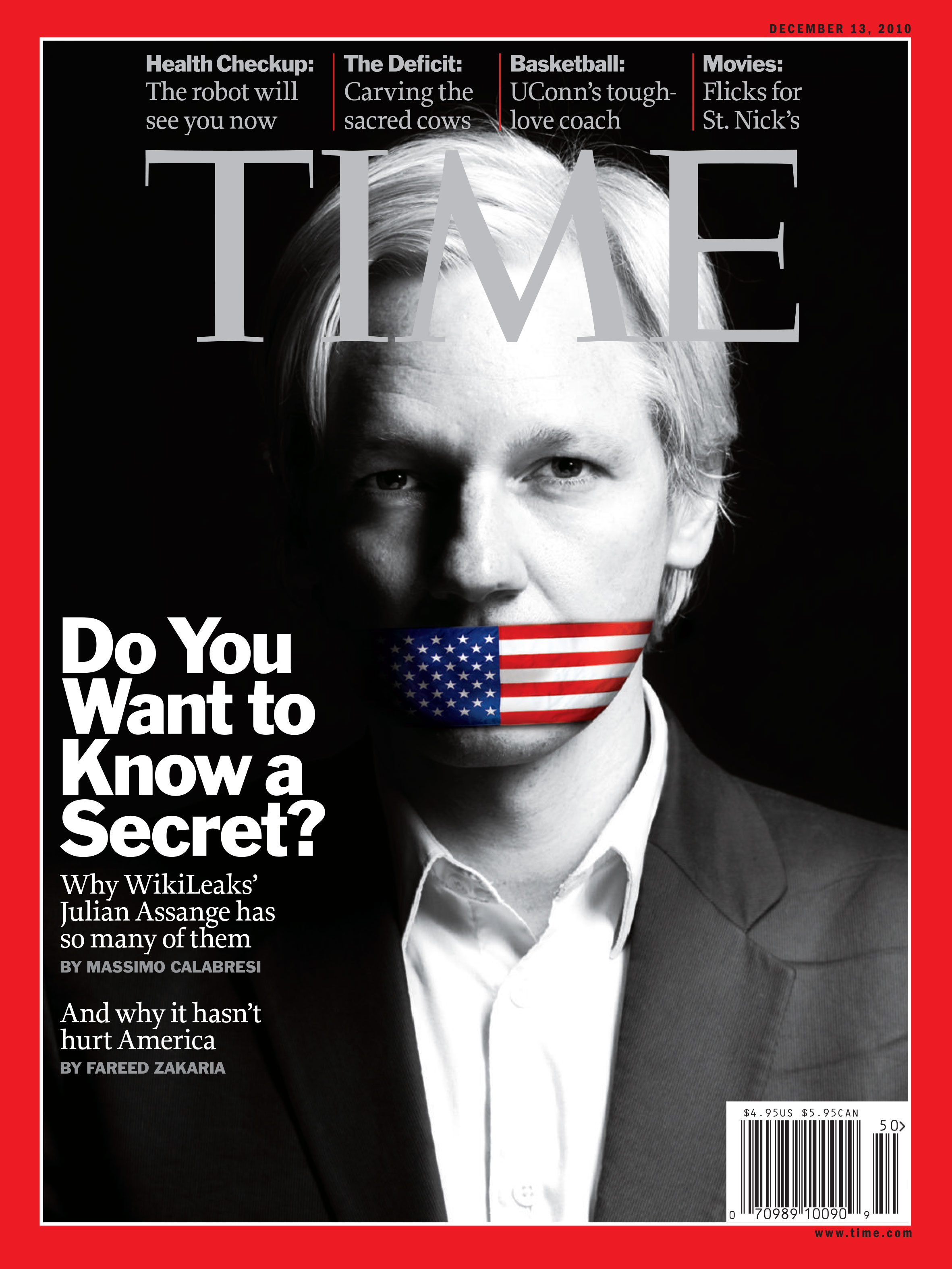To understand why so many media and legal observers are voicing concern about the Julian Assange indictment, it helps to perform the following mental exercise.
If you were to click on this link to the WikiLeaks website, copy and paste the information there, some of which remains classified, and post it on the Internet for others to read, you would have technically violated the very same provisions of the Espionage Act under which Assange is now being prosecuted.
In fact, the Espionage Act is so broad that just encouraging you to do so — which our lawyers would like us to stress that we are not doing here — could be a violation of it.
Of course, it is unlikely anyone would prosecute you, or us, for doing any of that. Prosecutors have other things to do, and everyone has assumed for a long time that if they tried, the Espionage Act — drafted at the height of anti-Bolshevik hysteria in World War I — would be considered so clearly in violation of the First Amendment’s bedrock protection of free speech that it would almost immediately be ruled unconstitutional.
What people find scary about the Assange case is that for a long time, everyone said the same thing about charging someone for receiving or publishing still-classified material. Journalists do that all the time, and, until now, the government has limited itself to going after the government employees who had access to the classified information and who had promised — in writing — that they would not leak that information as part of the process by which they gained clearance to handle that material to begin with.
The Assange indictment reverses those targets. “Assange, who did not possess a security clearance or need to know, was not authorized to receive classified information of the United States,” the indictment reads.
“The underlying theme here is criminalizing the receipt or publication of classified information, which is what reporters do, particularly investigative reporters and national security reporters,” says Gabe Rottman, director of the Technology and Press Freedom Project at Reporters Committee for Freedom of the Press. “That theory is of great concern to journalists and newsgathering.”
The larger concern is getting obscured behind two things in the Assange case.
The first is whether Assange is a good or bad person. When he first came on the scene, he was viewed as something of a free speech radical. But that changed over time. First, WikiLeak source Chelsea Manning’s prosecution showcased circumstantial evidence that Assange may have helped Manning get the documents, rather than simply receiving them after the fact. (Manning says she acted alone, and Assange denies the claim of assistance.) Then Swedish prosecutors began looking into allegations of sexual assault. (Assange, again, denies the claim.) Finally, Assange’s involvement in Russia’s influence efforts in the 2016 election, documented in Special Counsel Robert Mueller’s report, made him less of a sympathetic figure.

Read More: WikiLeaks’ War on Secrecy: Truth’s Consequences
The danger, civil libertarians say, is that declining popularity will facilitate damaging free speech in America. “Assange is extremely unsympathetic and I had little anxiety about the [separate computer hacking] charges against him,” says Susan Hennessy, executive editor of Lawfare and former NSA lawyer, said on Twitter. “But it will be very difficult to craft an Espionage Act case against him that won’t adversely impact true journalists,” Hennessey says.
Which gets at the other obscuring factor: whether or not Assange or Wikileaks are performing journalism. There has been an active debate on this point, and journalism in the age of the internet is indeed hard to define. But the larger issue of the potential damage to free speech in the Assange prosecution is not affected by the answer, if there is one, legal experts say.
“Julian Assange’s status as a journalist doesn’t really matter,” says RCFP’s Rottman. “Part of the problem with this case is the legal theory: criminalizing the receipt of publication of classified information. You can’t just say, ‘This person is a journalist and this person is not a journalist.’” When the Justice Department gets into that kind of line-drawing, that’s problematic.”
The ACLU is even more animated in its concern.
“For the first time in the history of our country, the government has brought criminal charges against a publisher for the publication of truthful information,” Ben Wizner, director of the American Civil Liberties Union’s Speech, Privacy, and Technology Project, said in a statement. “This is an extraordinary escalation of the Trump Administration’s attacks on journalism, and a direct assault on the First Amendment. It establishes a dangerous precedent that can be used to target all news organizations that hold the government accountable by publishing its secrets. And it is equally dangerous for U.S. journalists who uncover the secrets of other nations. If the U.S. can prosecute a foreign publisher for violating our secrecy laws, there’s nothing preventing China, or Russia, from doing the same.”
Such big concerns may sound overly pessimistic, but the Assange indictment is just the latest example of the accelerating moves by Democratic and Republican presidents to enforce the Espionage Act in ever-more ambitious ways. In an era of ever-expanding secrecy in government, and greater and greater hostility to the press, the alarms around the Assange case, start to sound less alarmist.
More Must-Reads from TIME
- Cybersecurity Experts Are Sounding the Alarm on DOGE
- Meet the 2025 Women of the Year
- The Harsh Truth About Disability Inclusion
- Why Do More Young Adults Have Cancer?
- Colman Domingo Leads With Radical Love
- How to Get Better at Doing Things Alone
- Michelle Zauner Stares Down the Darkness
Write to W.J. Hennigan at william.hennigan@time.com